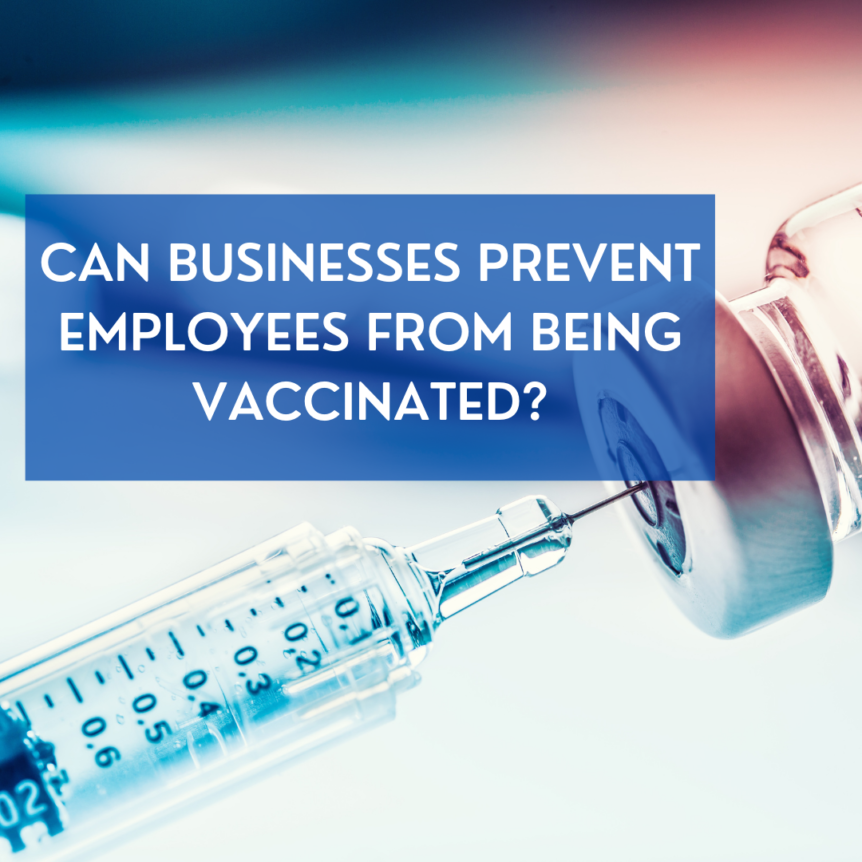by: Kris Finlon
I’ve previously written on the question of whether employers can legally require employees to get a COVID-19 vaccination. However, recent stories in the news have presented a different question: can employers legally prohibit employees from getting vaccinated? Or, for that matter, from wearing masks or engaging in other behaviors promoted by the Centers for Disease Control to prevent the spread of the disease?
The most headline-grabbing story involves a private school in Florida whose cofounder sent a letter to faculty and staff last week advising that employees who had already received a vaccine would need to be distanced from students, and requesting that employees hold off on getting a vaccine until the summer. Employees who do receive a vaccine over the summer would not be allowed to return, according to the letter, until clinical trials on the vaccine are completed, and then only if a position was still available at that time.
This raises the question: can an employer legally prohibit its employees from getting vaccinated as a condition of their employment?
States have advanced conflicting legislation and executive orders concerning what businesses may and may not require of employees. However, employers who attempt to bar employees from receiving vaccinations or taking other safety precautions may run afoul of federal employment laws.
Barring employees from receiving vaccines, for example, could violate the Americans with Disabilities Act. This is especially true for employees who have medical conditions which place them at higher risk of serious complications from COVID-19, or who have a relationship or association with someone with such a medical condition.
Moreover, employers who prohibit employees from receiving vaccines may run afoul of federal workplace safety laws. Recently, the United States Department of Labor imposed a fine of more than $136,000.00 against a business in Massachusetts for failing to implement basic COVID-19 safety guidelines. Specifically, the Department found that Liberty Tax Service had required employees to work within six feet of one another and customers for multi-hour shifts, had prohibitedboth employees and customers from wearing face coverings despite statewide mask mandates, had failed to provide adequate ventilation, and had failed to implement any other administrative or engineering controls to prevent the spread of the virus. These actions, the Department found, constituted a willful and serious violation of the Occupational Safety and Health Act.
While the Department of Labor has not weighed in on businesses that prohibit employees from receiving vaccines, it is apparent that the Department takes seriously the obligations of employers to provide safe working environments for their employees by reducing the spread of COVID-19 in the workplace. Data published by the Centers for Disease Control indicates that vaccinations are effective at preventing COVID-19 infections. Accordingly, employers who are considering vaccination prohibition policies – or any other policies that would reduce, restrict, or prohibit safety measures to prevent the spread of the virus – would do well to consult with counsel about the liabilities and risks under their state and federal laws.

